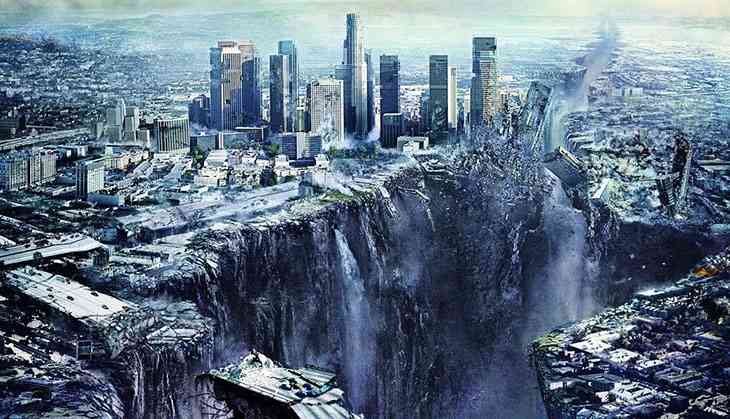15,000 scientists issue a dire ‘warning to humanity’ 2.0 letter

It was 25 years ago when the Union of Concerned Scientists got together -- more than 1,700 scientists, including several Nobel laureates, penned the 1992 'World Scientists’ Warning to Humanity'.
Now, in 2017, more than 15,000 scientists from 184 countries issued another such warning, "we have unleashed a mass extinction event, the sixth in roughly 540 million years, wherein many current life forms could be annihilated or at least committed to extinction by the end of this century," they wrote in a note World Scientists' Warning to Humanity: A Second Notice in the journal BioScience on 13 November.
At 15,372 signatories, it is the largest formal support by scientists for a journal article. And their main point is that time is running out.
What was the first 'warning to humanity'?
The original letter, signed in 1992 by over 1,700 scientists basically argued that human impacts on the natural world were more than likely to lead to "vast human misery" and that human beings "were on a collision course with the natural world". The concerns about "current, impending, or potential damage" on the Earth that we humans live on involved the following:
- Ozone depletion
- Freshwater availability
- Marine life depletion
- Ocean dead zones
- Forest loss
- Biodiversity destruction
- Climate change
- Sustained human population growth
At the time, they had said fundamental changes were urgently needed "to avoid the consequences our present course would bring". Boil it down, and the main fear was that humanity was destroying Earth beyond its capabilities to support life. The limits that the biosphere can tolerate without any irreversible damages were fast approaching. Furthermore, human population growth needs to be kept in check. One of the solutions given was to phase out fossil fuels, reduce greenhouse gas emissions and reduce deforestation.
25 years on, we know that none of that happened. Hence warning 2.0 has come about.
A Second Notice
This is an update to 1992's 'doomsday' document. “We did the update because we wanted to let the public know where we stand today,” William Ripple, an ecologist at Oregon State University and co-author the 'Second Notice' article told Motherboard (https://motherboard.vice.com/en_us/article/59yqj8/world-scientists-warning-to-humanity-second-notice-climate-change-environment). "With few exceptions, those trends have gotten far worse over the past 25 years."
William J Ripple, a professor of ecology at Oregon State University, drafted the second notice. "Humanity has failed to make sufficient progress in generally solving these foreseen environmental challenges, and alarmingly, most of them are getting far worse," reads the report.
The researchers who compiled the data have found that the past 25 years have seen:
- 26% reduction in the amount of freshwater available per capita
- 75% increase in the number of ocean dead zones
- 129 million acres of forest area lost
- 58% reduction in populations of global fish, amphibians, reptiles, birds, and mammals between 1970 and 2012.
- Since 1998, 10 of the warmest years in the 136-year record have occurred.
- The human population has increased by approximately 2 billion people since 1992.
- The Ozone Hole, in 2017, is the smallest its been since 1988.
Solutions to climate change
The scientists proffered five broad solutions to Earth's environmental crisis:
The scientists have offered five solutions for the dire environmental crisis upon our hands:
- Population must be stabilised and the growing middle class must be kept in check. All nations must recognise that it requires improved economic and social conditions and effective, voluntary family planning must be adopted.
- Resources crucial to human welfare must be efficiently managed. High priority has to be given to the efficient use of water, energy, and other materials. Recycling must be built upon.
- Environmentally damaging activities must be brought under control. The integrity of the earth's systems must be protected and restored.
- Poverty must be reduced and eventually eliminated. "We have also made advancements in reducing extreme poverty," reads the report.
- Sexual equality: Educate women. Educated women have fewer kids and they have more resources to them.


